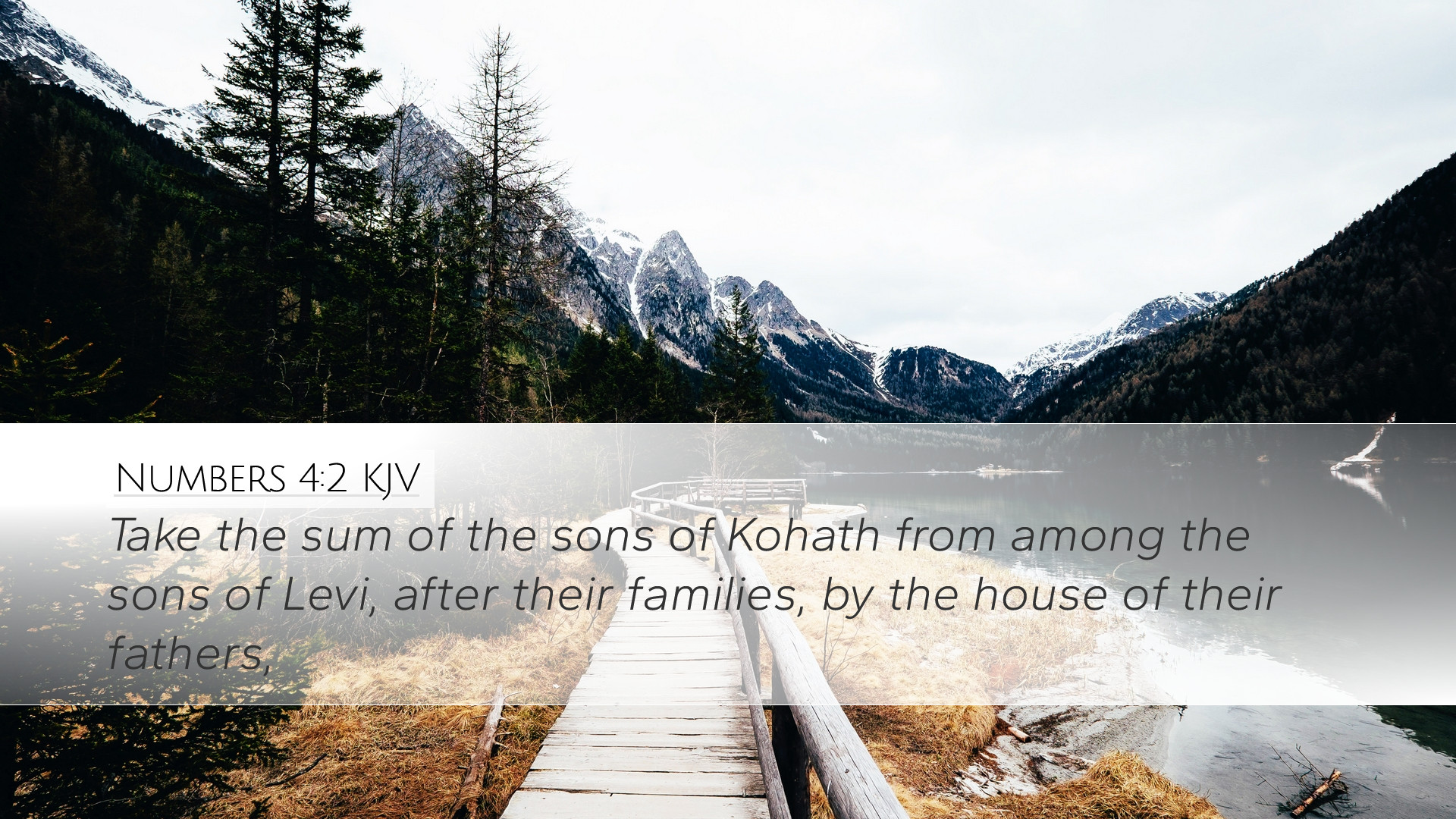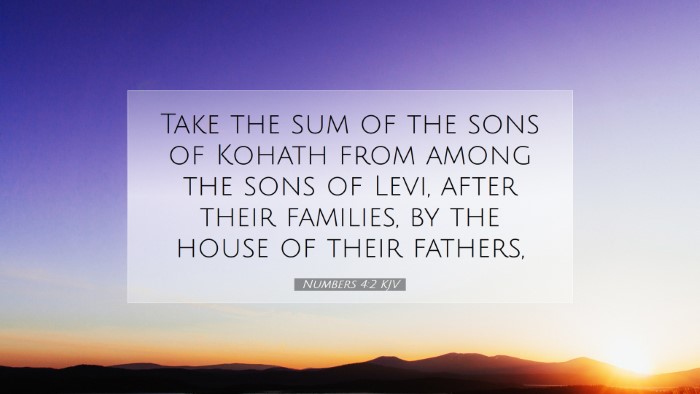Commentary on Numbers 4:2
Numbers 4:2 states: "Take a census of the sons of Kohath from among the sons of Levi, by their clans and their families." This verse introduces us to a significant part of the Levitical priestly duties and the organization of the children of Israel during their desert wanderings. The Kohathites, one of the clans of the Levites, held a crucial role in the transportation and care of the sacred objects of the tabernacle.
Overview of Context
The book of Numbers serves as a record of the Israelites’ journey through the wilderness post-Exodus, providing essential genealogical and logistical information about the Levites and their roles. The Kohathites, as instructed through this census, had specific responsibilities that highlighted the sacredness of their tasks.
Significance of the Census
According to Matthew Henry, the census was an organizational measure essential for the orderly setup and maintenance of the Israelite camp. It was not a mere count of numbers but a designation of roles and responsibilities. Henry emphasizes the importance of order in the sacred duties and the emphasis on the divine command in all organizational aspects.
Roles of the Kohathites
Albert Barnes expounds on the specific duties assigned to the Kohathites. Their role included carrying the most holy items of the sanctuary, such as the Ark of the Covenant and the altar of incense, indicating a privileged yet greatly responsible position among the Levites. They did not just carry wooden carts but had to follow specific divine instructions as to how these sacred objects were to be transported.
Theological Implications
From a theological perspective, the Adam Clarke's commentary illustrates the principle of holiness associated with the Kohathites' assignments. The careful treatment of the sacred objects underscores the necessity of reverence in the presence of God. The census delineated who was permitted to handle holy things and who was not, emphasizing the holiness of God's presence.
Insights for Pastoral Application
For pastors and church leaders, this passage can serve as a reminder of the critical nature of roles within church ministry. Just as the Levites had defined roles and responsibilities, the church must recognize the unique gifts and callings of its members. This organization contributes to the health and function of a church community.
Lessons on Service and Reverence
- Understanding Roles: Just as the Kohathites had a specific calling, every believer has been given unique gifts for the service of God.
- Reverence for the Sacred: There is a need to uphold the sacredness of ministry, recognizing that handling God’s truth and presence requires a humble and reverent attitude.
- Obedience to God’s Commands: The Kohathites were guided by divine commandments; similarly, church leaders must rely on biblical principles in their ministry operations.
Historical Context
Historically, this organization amongst the Levite clans is significant in understanding Israel's societal structure as they wandered in the wilderness. Each clan had its duties, fostering a sense of community and shared responsibility, a principle that can be applied within modern church structures.
Conclusion
Numbers 4:2, though a simple directive for a census, encapsulates profound lessons about organization, holiness, and service within God's plan. As the church seeks to navigate its path amidst challenges, the principles reflected in this passage encourage orderly service rooted in reverence and a sense of purpose.


